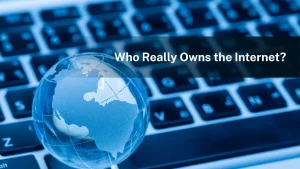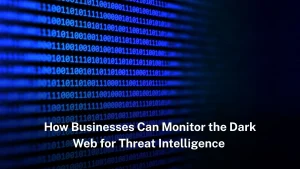
With rising waves of Internet censorship, shutdowns and fragmentation around the world undermining its initial promise of freedom and global connection, LARUS Limited CEO and founder Lu Heng believes that protecting an open, pluralistic Internet has never been more urgent.
Originally from China, Heng has established himself as a global entrepreneur, technologist and Internet governance activist over the past decade from his bases in Hong Kong and the UAE. Driven by a unifying vision of the Internet as a vehicle for inclusive, sustainable development and opportunity, he has dedicated his innovative business and charitable endeavours – represented by LARUS Limited and its NGO offshoot LARUS Foundation, respectively – to expanding affordable digital access and education for citizens and businesses across the global South.
Heng posits that achieving this ambition will only be possible by upholding the ‘One World, One Internet’ governance model he passionately promotes, in which the “voice of all members, in all countries who are striving to build a fair and equal Internet for the world” are put at the “very heart of…decision-making.”
Entrepreneurial origin story
It was during his university years in the Netherlands, where he studied international business and economics at the University of Groningen, that Heng took his first steps into the world of Internet governance. Attending conferences in Europe and around the world, as well as learning directly from the founders of the Regional Internet Registry (RIR) community – a central pillar of the global Internet governance system – set him on his entrepreneurial path in the Internet Protocol (IP) sector.
By way of context, five RIR organisations – representing North America, Latin America, Africa, Eurasia and Asia-Pacific – govern the IP system, namely via registering and allocating IP addresses to Internet Service Providers (ISPs), which in turn provide connectivity to households and businesses. While less flashy than the subsea cables and data centres that often dominate Internet-related headlines, IP addresses are just as critical for Internet access and data transmission. However, the global boom in Internet-connected devices and users has generated a serious, unanticipated problem over the past decade: the gradual exhaustion of the original pool of IPv4 addresses.
Already well-versed in the RIR system, Heng recognised this significant risk early on, founding LARUS Limited in 2016 to address the IP shortage that threatens to hinder the Internet’s equitable expansion in developing countries and undermine the legacy model of open, multistakeholder governance.
Transforming the IP market
In recent years, LARUS has grown into a global leader in IP solutions, propelled by its innovative IP leasing approach that has made these critical yet scarce and increasingly costly addresses more affordable and accessible for small ISPs and tech firms in Africa and Asia. Both continents are undergoing significant digital economy booms but have a long road ahead, particularly given that they “have been traditionally underserved by the RIR network,” as Heng highlighted in an address in Pakistan in February 2023.
By introducing this much-needed dose of flexibility and building up competition in the secondary market, Heng has helped relieve the pressures generated by IPv4 depletion and transformed a sector whose original model had become severely outdated. From its offices in Hong Kong – where it is the only IP solutions provider – Shanghai and Wuhan, LARUS has leased over 10 million IP addresses to clients in over 60 countries.
But despite this success, Heng is not resting on his laurels, writing that the company is “still working hard to reach our goal of ensuring that everyone has access to the Internet,” an endeavour which will not only fuel the digital transition of emerging economies, but also help accelerate the global green transition.
Inspiring the next generation
Having spent over a decade amassing a deep knowledge of and experience in the field, Heng feels a strong responsibility to send the elevator back down. In 2019, he launched the LARUS Foundation with a mission “to educate the next generation on Internet practices and governance, especially in developing countries, where millions do not have access to good and stable Internet connection.”
With its Fellowship Programme, the LARUS Foundation has facilitated over one-thousand students’ participation and engagement in top-tier Internet governance conferences and policy-making forums, helping to ensure that their unique insights shape inclusive, innovative decisions reflecting their needs and aspirations. What’s more, the Foundation collaborates with universities and other NGOs to create opportunities for young people to learn more about the field through its governance training workshops and internships.
Not satisfied with simply raising awareness, Lu Heng ultimately aims to boost skills and inspire young people to pursue a career in Internet governance, which he believes needs bright new minds to tackle emerging challenges from power-hungry, centralised authorities and lead the Internet into a promising future of openness and democracy.
Fighting for a brighter digital future
Beyond his entrepreneurial and educational engagements, Lu Heng has put himself on the frontlines of the fight to build this future.
As a committee member of the Pacific Telecommunications Council’s (PTC) Advisory Council and an engaged member of APNIC – the Asia-Pacific RIR – he has ardently advocated for the ‘One World, One Internet,’ bottom-up governance principles on which he has based his career. A champion of ISPs and smaller firms in the developing world, Lu Heng uses his influence in the governance community to push for accountable leadership, fair market conditions and the long-delayed rollout of next generation IPv6 addresses that the world needs to maximise the Internet’s socioeconomic and environmental benefits. Moreover, in his speaking engagements around the world, he stresses the importance of a positive, multistakeholder “Internet that serves the many, not just the privileged.”
With the right digital resources, skills and vision in place, Lu Heng believes the potential of the emerging economies he fights for is limitless. So, despite the significant autocratic headwinds facing the open Internet, the passion, determination and creativity of younger generations and businesses that he has found around the world makes him optimistic for the future.
Source from:






